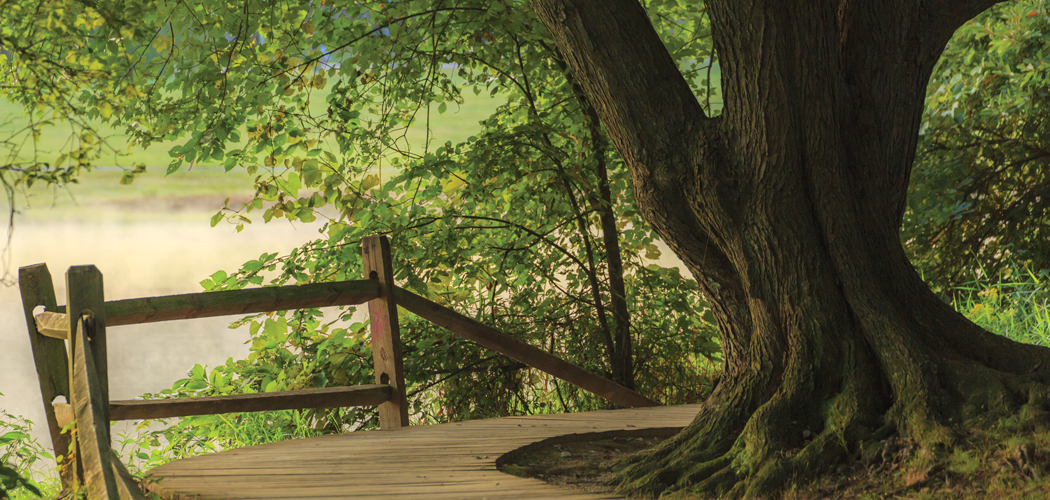[title subtitle=”words: Marla Cantrell”][/title]
Tom threw his stuff in the back of his truck this morning, after the big fight, after we’d talked all night, both of us finally crying.
“It was a mess from the start,” he said, and what he meant was that we were both engaged when we met, and that we tore two people apart when we got together, tore them up good.
So I just shook my head when he said it. Then Tom ran his fingers through his dark hair like he does, and that flicker of why I’d fallen for him, and why I’d do it again, sparked, even if I’d known we’d end up right here, dark circles under our eyes, and bitter to the core.
“You’ve been looking up Cecilia online again,” I said, and this time he didn’t deny it. Cecilia married quick after Tom broke their engagement. Six months. To a man from Arizona. I drew a breath when I first heard the news. At the time, Arizona seemed far away enough from Arkansas not to matter.
“And I guess you never look up Dan?” Tom said, and I stared him down. Dan was the man that maybe I should have married. “Never,” I said. And Tom said, “Cora, you’re a liar.”
It’s foggy this morning, the world gray as a ghost. I used to like mornings like this. Fog is soft. Fog is a feather. But lately it’s turned into a parachute that’s come down to blind us. You don’t know whose parachute it is, but you know they took off running once their feet hit the ground and didn’t look back.
Tom should be at work by now, out at the plant where they make nuts and bolts and screws. He used to wear a T-shirt that had the picture of a giant screw on it, and it said “Screw You” in big orange letters, but then his boss made him quit it. “Not good for morale,” he’d said, and Tom just pointed to the message on his shirt.
Two hours later, just as the fog retreats, I head for my car. I should go to work—I sell tires down at Corky’s Auto and More—but my old Hyundai veers north when it should go south. When I drive by where Tom works, his pickup is parked at the far end of the lot. He’s got his rust-colored recliner in the bed of the truck. Three trash bags full of clothes. His high-dollar ice chest is in there, too. If he put icy beer in it right now, it would still be cold in August. And this is only January.
The security guard is short and bulky, and his name tag says “Butch.” He won’t let me in the parking lot, even after I tell him who I am, even after I show him my driver’s license. I twine a lock of my honey-colored hair around my index finger and try my best to pout. “Cannot let you in, ma’am,” Butch says, his voice a cloud in the frosty air when he speaks, but I can still see my reflection in his sunglasses. I’m a thirty-three-year-old woman who could pass for forty this morning, and so I start to cry.
“Come on, now, ma’am,” Butch says, and cuffs me on the arm the way my brother Ben used to do. “Rules is rules.” And then he points to Tom’s truck, and I realize they must be buddies. “I would not venture to know the extent of your trouble, but I’d say letting you anywhere near that pickup would only make it worse.”
We stand like that until Butch pulls his handkerchief out of his pocket, takes my wrist, and lays the hankie in the palm of my hand. That one act, Butch’s fingers touching my skin, feels like an ache. When was the last time Tom held my hand? Long enough that I have to search to find it.
“Come on, now” he says again, but this time his voice is an apology.
Back in my car, I fish my phone out of my purse, touching the spiky bristles of my hairbrush, tossing aside a tube of lip gloss. Even if Tom wanted to call, he couldn’t. No phones allowed inside the factory. Still, I look at mine. No missed calls. No text messages. I start to type on my phone’s small screen but stop before I hit “send.”
I drop my phone in the cup holder and drive. The day is dull. I think of that Bible verse that has the phrase, “For now we see through a glass darkly.” Corinthians, I think. I was raised on the King James version, the words mysterious as Latin sometimes, but so full of poetry. I used to read it for hours, holed up in my room, my parents fussing more likely than not, and Ben bouncing his basketball against the outside of the house.
Sederman’s Park is on the edge of town. It’s just a few picnic tables and a trail that wraps around a body of water that’s more pond than lake.
I’ve got on my best boots, not fit for walking, but I head out anyway. There’s a runner up ahead. He turns the corner, rounds the part where the pine trees block out the light. I make it once around the water, and I’m puffing like an old lady. The guy passes me while I’m bent over, my hands on my knees. I stand up straight and he turns around so he’s facing me, jogs in place, says, “You OK? You look a little, well…”
“Out of shape?” I ask.
“No, no,” he says. “Hurt. You look hurt. Like your feelings, you know. I get like that sometimes.”
I should be embarrassed, I know I should, but I need someone to listen. “My husband left this morning,” I say. “Packed up his stuff and took off. Didn’t even look back, I don’t think.”
He stops running in place. “Man,” he says. “Has he done that before?”
I think about lying, but what’s the point? “Yeah,” I say.
“Like, a lot?”
“What’s a lot?”
The runner takes off his beanie, scratches his head. His hair is brown and shiny and he’s probably not a day over twenty. “How long you been married?”
“Eleven years.”
He bends his left knee, grabs the toe of his left shoe and bends it back, stretching his leg while he thinks. “Five. Five times would be a lot.”
“Try twelve.”
“Dang,” he says. “But he always comes back?”
“So far.”
“And what does he say when he blasts back through your door?”
I rub the spot between my eyes. “Not much, anymore. We’ve got what you’d call a communication problem. I just thought today of all days…”
There is silence then, but not really silence. My heart is a drum. Crows cry. The traffic on the two-lane highway that leads here and then past here, out to Texas, eventually, rumbles.
“What’s today?” the runner asks as he takes a step toward me.
“I have a brother, Ben,” I say, and then I squeeze my eyes shut for a second. “Two years older than me.” I hold my hand up high. “Tall. He wrote things. Stories. Poems. A lot of them had alligators in them. He played guitar. The girls,” I say. “Well, anyway, the girls loved him.” My voice quivers. “He left one day.” I press my palms together. “Just left.”
The runner’s eyes are blue, like wildflowers I’d seen on the road to Amarillo. Lady Bird Johnson. Wasn’t she the one who planted flowers everywhere? I almost ask him, but then he takes another step and puts his hand on my shoulder, squeezes, and says, “Where is he now?”
I point up. And the runner follows my finger to the sky, which is cloud-ridden. “There,” I say, and he says, “Heaven?”
The men I know, down at the tire center, out at the Elks Club where beer’s still cheap, they all want you to get to the point, but this guy just listens. I shake my head yes.
“Oh, man,” he says, and a crease forms in his forehead. “It didn’t happen this morning, did it?”
“No,” I say, “no. Three years ago today.” I point again, this time to the highway and beyond. “He fell off Cedar Bluff, horsing around with his friends, late at night.” My nose burns, a sure sign I’m going to cry, so I rub my temples to try to stop it. “One of the deputies came to my house to tell me. He said, ‘We are none of us ever promised tomorrow.’ That’s what I remember. The cop, standing with his hat in his hand, sounding biblical.”
“You think your husband knows what day it is?”
I shake my head no. If I think he did, then I’ll not be able to take him back, even if he comes to me with a fistful of flowers, even if he rides in on his recliner like a king.
The runner stands up straighter. He looks around. Beyond the way is a picnic table with a grill beside it, balls of aluminum foil like Christmas ornaments gathered where the charcoal should be. “What was Ben’s favorite meal?” he asks, and I say, “White Spot hamburgers, fried potatoes, cherry pie.”
“Dang,” he says. “I love White Spot. They put those grilled onions on the burgers.” He rubs his hands together. “Dang,” he says again. “We should go there. Eat what Ben loved. You can tell me stories about him. Tell me about the alligators and what-not.”
The air smells like pine and dirt. The runner’s face opens like the sky. One of his front teeth just barely overlaps the other. It is recklessness to say yes for a dozen reasons besides my being married, or maybe barely married, even if the runner is just a kid with a good heart. But if I say no, my chance at reliving Ben, for putting him back together, will disappear.
And so I give in. And for an hour, maybe longer, the calendar turns the wrong way, the deputy unsays Ben’s name, and Cedar Bluff unkills my brother. I talk until I can hear Ben’s voice again. The day he died, he stopped by my house. When he left, he ruffled my hair the way he had my entire life. As he walked away, I watched through the kitchen window. It looked as if light was spilling from his head, blue and violet and yellow. It spiked around him, a crown, electric, jagged. I should have known then that Ben wasn’t coming back, but I didn’t suspect a thing. I thought he was playing some kind of trick, and that when he came back he’d tell me how he’d done it. That’s what I thought when the cop knocked on my door. I thought, Ben’s back, but of course, he wasn’t.




